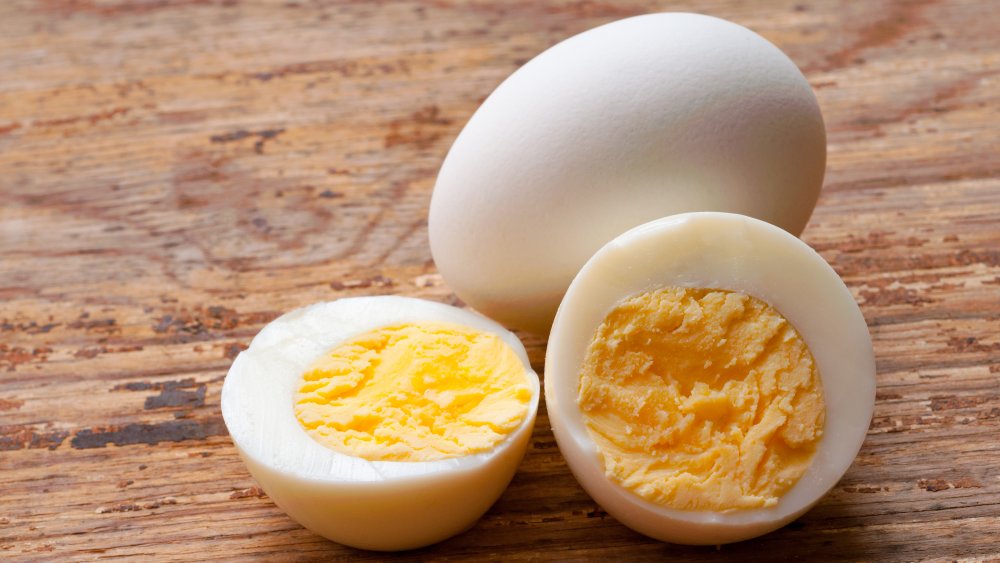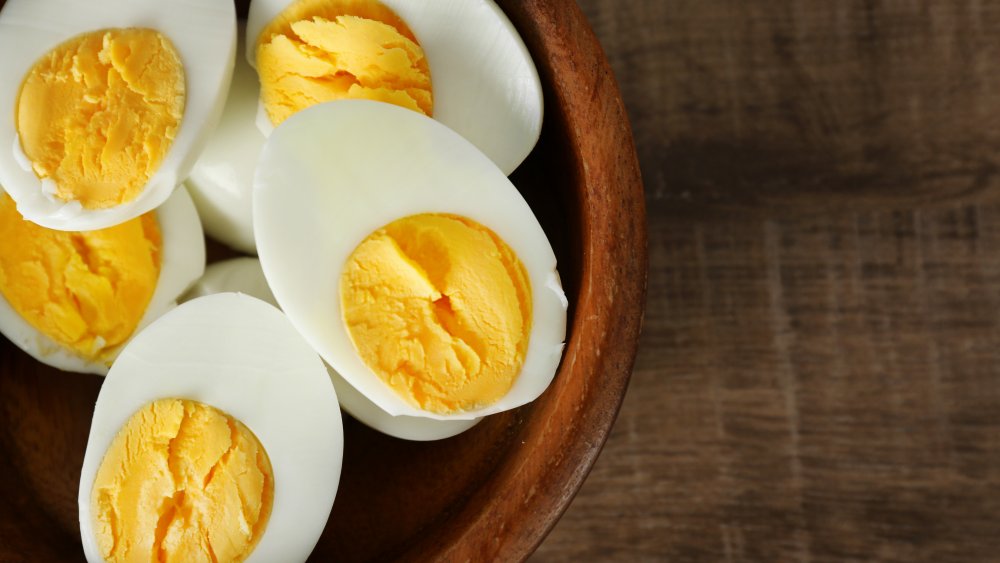You Should Never Peel Hard-Boiled Eggs Before They've Cooled. Here's Why
The trick to make a perfect hard-boiled egg is simple: You want to start with cold water, because allowing the water and egg to rise in temperature together, cooks the egg evenly and prevents cracking (via The Kitchn). Why not make hard-boiled eggs all the time? They're extremely versatile, can be used for a snack or any meal of the day, and are the first step in a number of dishes like deviled eggs, and egg salad. Hard-boiled eggs can also be prepared in advance, since they last for a good long while in the refrigerator. Of course, even if you've got the perfect hard-boiled egg, peeling it can still pose a challenge.
Peeling an egg that is still hot often results in taking chunks out of the egg white, while trying to get the shell off. And nothing is worse than ruining your hard-boiled egg before it's even hit the plate. Luckily, there is an easy way to ensure this does not happen to you — allowing the egg to cool down before peeling.
Why you should let your eggs cool down
Peeling an egg actually requires the removal of two layers. Of course, the shell has to be removed, but the trickier part may actually be the removal of the thin layer directly inside the shell, which is the egg's membrane. Allowing the egg to cool will cause the egg white to contract slightly, and will allow the egg to separate from the membrane (via The Kitchn). On top of that, giving your egg time to cool off causes the membrane itself to become firmer, making it easier to peel.
If you're impatient, put your eggs straight into the fridge (letting them cool to room temperature before peeling sounds like it will take too much time!), or for a faster fix, you can also submerge them in a bowl of ice water. This will also stop the cooking process and prevent your eggs from overcooking, which, is possible, yes, and results in a rubbery consistency (via The New York Times).
If you have the patience, and prefer to let your hard-boiled eggs cool down at room temperature, the process will take around 15 minutes after you've removed them from the pot.

